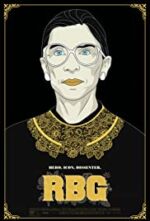Ruth Bader Ginsberg is quoted as saying, "[a] gender line...helps to keep women not on a pedestal, but in a cage." Research the ways that women were legally discriminated against prior to the 1970s in the U.S. Which of these is most surprising to you, and why? How would your life be different today if not for gender equality to the degree that it has been achieved?
Weinberger v. Wiesenfeld is one of the six times that Ruth Bader Ginsberg argued in front of the Supreme Court as an attorney. First research the background of the case and learn who she was representing in the case. Does anything surprise you about her client? Next listen to the audio recording of her oral argument (https://www.oyez.org/cases/1974/73-1892) she starts speaking at the 23-minute mark. How is your understanding of RBG and her legacy affected by hearing her voice making this argument?
What was Ruth Bader Ginsberg's record before the Supreme Court? Research one of her losses to determine when and how her position ultimately took effect. Ex. in Frontiero v. Richardson, RBG argued that male spouses of female service members should receive the same dependent benefits as members of the opposite sex. She lost that case, and yet today those benefits are the same regardless of the gender of the service member or their spouse.
What adversities did Ruther Bader Ginsberg overcome in her lifetime? How did RBG become a cultural icon? Do you feel like your life is directly affected by her legacy? If yes, how so? If not, why not?

